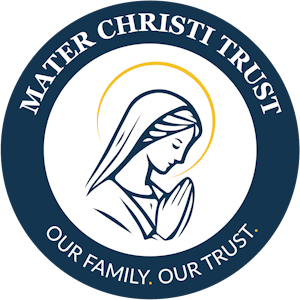English
Writing
We follow a Mastery approach to English through the programme ‘Pathways to Write.’ Units of work are delivered using high quality texts and children in all year groups are given varied opportunities for writing. Skills are built up through repetition within the units, and children apply these skills in the writing activities provided. Many opportunities for widening children’s vocabulary are given through the Pathways to Write approach and this builds on the extensive work we do in school to provide our children with a rich and varied vocabulary.
You will find the end of year expectations for writing, reading and spoken language for each of our year groups in the attached documents. For further detail on the skills that your children are learning on a termly basis, please contact your class teacher.
Grammar
Throughout school, grammar and punctuation is taught to match the writing purpose. This begins with teaching and consolidating basic sentence structures in Early years and Key Stage One.
In Key stage Two, children further develop their understanding of increasingly complex sentence structures, and using the relevant technical terms to be able to discuss and justify the choices they have made when structuring their ideas.
Handwriting
Handwriting is very important at St Cuthbert's, and children are taught to write in a neat, legible style, from their earliest days in school, and using a cursive script from Year One onwards.
To support handwriting, we use a programme called Letter-Join.
Handwriting sessions are timetabled, with the focus on correct pencil grip; forming all letters correctly by knowing the size and orientation of each letter; using the correct handwriting joins; clear and neat presentation and increasing fluency and speed of writing.
Spelling
At St. Cuthbert's, we have devised our own whole-school spelling scheme.
Children are taught spellings, which are and tested weekly throughout KS1 and KS2 and children's progress in spelling is tracked carefully as they move through school, so that any gaps in spelling can be identified and quickly addressed.
Children also regularly use dictionaries and thesaurus to check and improve their work.
Oracy
At St Cuthbert's, we want every child to find their voice.
With oracy at the heart of our curriculum, we are committed to building and embedding a culture of oracy. Purposeful talk is used to drive forward learning. Talk in the classroom has been planned, designed, modelled, scaffolded and structured to enable all learners to develop the skills needed to talk effectively and with confidence. The deliberate, explicit and systematic teaching of oracy across phases and throughout the curriculum will support children to make progress in the four strands of oracy.
Oracy develops pupils' confidence, articulacy and capacity to learn. Providing a high quality oracy education empowers students, regardless of their background, to find their voice for success in school and in life. Effective communication skills are needed for students to succeed in later life.
Language Structures
Click here for a document produced by the London Borough of Tower Hamlets which give a clear progression in language structures for children from Reception to Year 6.
Inclusive Practice
We endeavour to ensure that all pupils have access to the school curriculum and all school activities. We help all pupils achieve to the best of their abilities, despite any difficulty or disability they may have. In order to ensure this happens across the full curriculum we:
- Prioritise Quality First Teaching, adapted, to help children with identified needs access their learning. This is regularly monitored and continually developed.
- Ensure that teaching staff are aware of and sensitive to the needs of all pupils, teaching pupils in a way that is more appropriate to their needs.
- Work in partnership with parents/ carers, pupils and relevant external agencies in order to provide for children’s special educational needs and disabilities.
- To make suitable provision for children with SEND to fully develop their abilities, interests and aptitudes and gain maximum access to the curriculum.
- Ensure that all children with SEND are fully included in all activities of the school in order to promote the highest levels of achievement.
- Promote self-worth and enthusiasm by encouraging independence at all age and ability
- Ensure that enrichment opportunities stimulate and motivate learning.
- Utilise specialist group support from outside agencies e.g. Speech and Language Therapy
- Give every child the entitlement to a sense of achievement.


 English Inclusive Environment
English Inclusive Environment